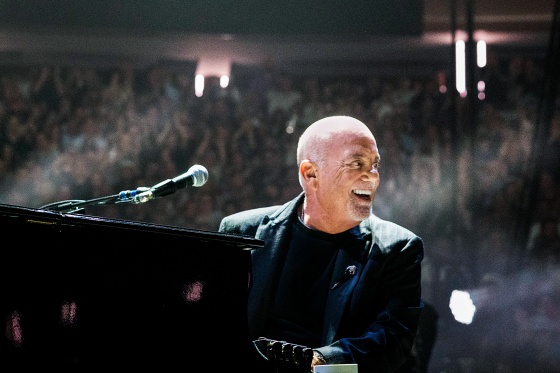When the Silence of Billy Joel's Piano Speaks Volumes
Billy Joel's health challenges pause his tour, highlighting his enduring legacy and cultural impact amid fleeting pop trends.

Billy Joel, the eternal Piano Man, a fixture of evocative storytelling and raw emotion in music, now finds himself in a challenging chapter. Diagnosed with Normal Pressure Hydrocephalus, a rare yet daunting brain disorder, Joel has made the difficult decision to cancel his upcoming tour dates. This pause, though unexpected, is a poignant reminder of his enduring legacy—a career defined by vulnerable defiance and melodies that drip with authenticity.

In an era where fleeting pop trends often overshadow real artistry, Joel's presence has been a constant reminder of what genuine musical rebellion looks like. He’s never needed the gimmicks of the digital age; his voice and piano have been more than enough. This rare disorder, affecting balance and vision, paradoxically mirrors a world that has lost its own balance in prioritizing glossy ten-second clips over the emotional odyssey of a four-minute song.
Beyond the Curtain Call
Joel's absence from the stage is not just the loss of live performances but a critical commentary on a culture adept at drowning out what truly matters. The music world, dizzy from its own self-inflicted frenzy of synthetic beats and autotuned melancholy, will feel the void where Joel's unfiltered, soulful cadence once boomed. His decision to prioritize health over performance is a quiet act of rebellion against the relentless machine demanding more at the expense of genuine expression.

In recent years, fans have watched others succumb to the pressures of an industry more concerned with productivity than poetry. But Joel, in his wise years, reminds us that there’s power in pausing, in collecting oneself, in rediscovering the music that resides beneath the noise. Joel’s music—rich with narrative depth and buoyant with emotional insight—will undoubtedly sustain his legacy through this hiatus.
The Echoes of Legacy
As fans, we’re left with a catalogue that remains as vibrant and as defiant as ever. From "The Stranger" to "Honesty," each note and lyric stands as a testament to real, impactful artistry. Joel's diagnosis may be a reminder of his mortality, yet his music transcends such earthly confines. It invites us to dwell in that space of introspection where true rebellion lives—not in the loud but in the quiet, where thought and feeling unfurl.

As we send well wishes from afar, we turn to podcasts like “The Opus: Billy Joel” to delve deeper into the stories behind the music. It's a reminder that even when the Piano Man's keys are silent, the echoes of his influence resonate, underscoring the truth that, despite the noise, real art is alive and waiting to be rediscovered.
Billy Joel's current health battle underscores a broader cultural struggle between superficial immediacy and enduring authenticity. As we navigate a world seemingly detached from the soulful energy that artists like Joel embody, perhaps it's time to stop and listen—not just to the music, but to the silence, where rebellion and real emotion still yearn to be heard.




